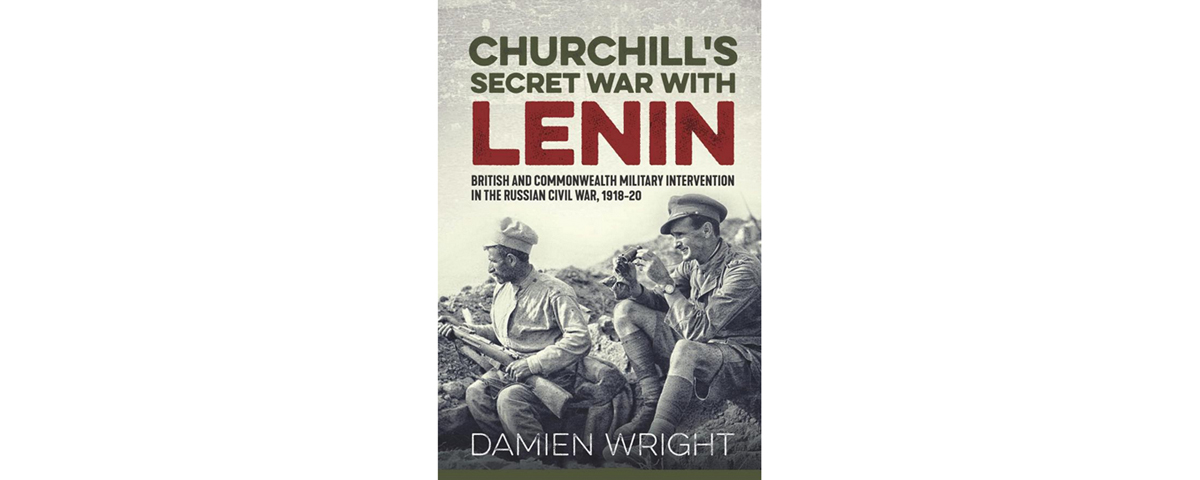Churchill’s Secret War With Lenin: British Commonwealth Military Intervention in the Russian Civil War, 1918–20, by Damien Wright, Helion & Co., Solihull, U.K., 2017, $79.95
The culmination of 15 years of research, Churchill’s Secret War With Lenin is author Damien Wright’s first book—and what a mighty tome it is, both in size (576 pages with numerous illustrations) and the scope of the narrative, which details British and Commonwealth military intervention in the Russian Civil War.
Although Czar Nicholas II abdicated in the wake of the 1917 February Revolution—ostensibly prompted by imperial Russia’s calamitous participation in World War I—the provisional government under Alexander Kerensky continued the war. The subsequent October Revolution saw Vladimir Lenin’s Bolsheviks grab power in Moscow and immediately cease hostilities, enabling Germany and Austria-Hungary to transfer immense numbers of troops to the Western Front. Alarmed at the turn of events, the British government sent a small number of Royal Marines to the port of Murmansk in March 1918 to safeguard the vast ammunition stores.
Matters escalated that September when a 5,000-man American contingent, comprising the 339th U.S. Infantry Regiment accompanied by engineers and a field hospital, landed at Arkhangelsk to protect stockpiled war materiel in that port. The Polar Bear Expedition remained through the following July, by which time more than 200 Americans had been killed.
British and Commonwealth forces remained in the fight, participating in several naval engagements. In Vladivostok the Royal Marines hoisted two river gunboats onto the Trans-Siberian Railway, sending them some 5,000 miles west to the Kama River, where they fought in support of White Russian forces. That August in the Eastern Baltic a flotilla of Royal Navy coastal motorboats raided Soviet naval installations in Kronstadt Harbor, damaging two battleships and sinking a supply ship. But little more than a year later Britain, too, packed it in.
On a visit to the United States in 1957 Soviet Premier Nikita Khrushchev caused confusion when he stated, “Never have any of our soldiers been on American soil, but your soldiers were on Russian soil. These are the facts.” Few hearing him had any idea what he was talking about. That holds true today, as the Allied intervention in the Russian Civil War remains forgotten. Wright’s book addresses that oversight, interspersing the broader story with the personal accounts of participants. Many would empathize with Australian volunteer Sergeant John Kelly, who six decades after the intervention reflected, “Had I known beforehand what the aim and nature of the mission was, I, for one, would never have volunteered for the job.”
—David Saunders





